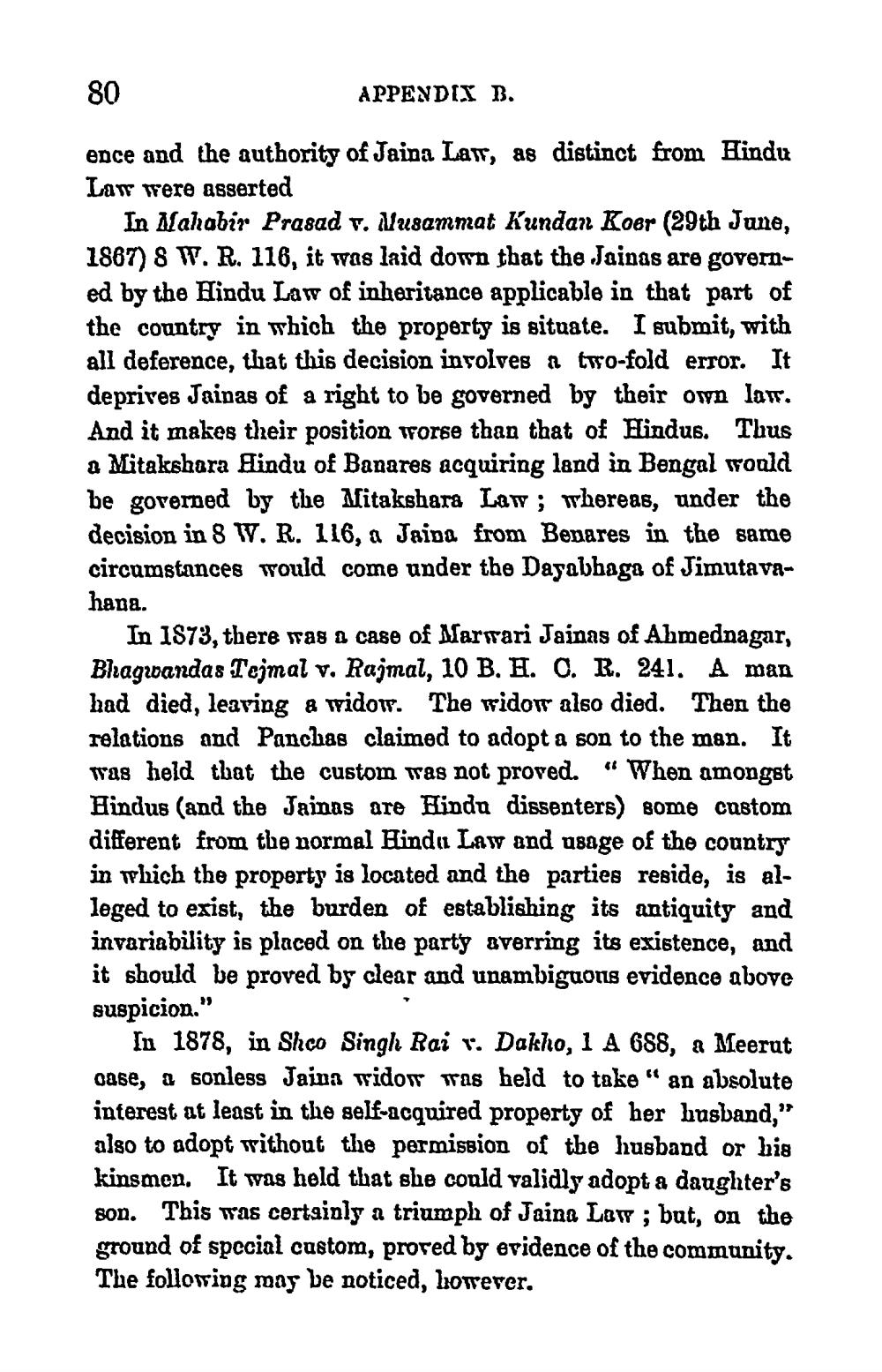________________
80
APPENDII B.
ence and the authority of Jaina Lan, as distinct from Hindu Lar Tere asserted
In Mahabir Prasad v. Musammat Kundan Koer (29th June, 1867) 8 W. R. 116, it was laid down that the Jainas are governed by the Hindu Law of inheritance applicable in that part of the country in which the property is situate. I submit, with all deference, that this decision involves a (to-fold error. It deprives Jainas of a right to be governed by their own lav. And it makes their position forse than that of Hindus. Thus a Mitakshara Hindu of Banares acquiring land in Bengal rould be governed by the Mitakshara Lav; thereas, under the decision in 8 W. R. 116, a Jaina from Benares in the same circumstances Tould come under the Dayabhaga of Jimutavahana.
In 1873, there was a case of Marsari Jainas of Ahmednagar, Bhagwandas Iejmal v. Rajmal, 10 B. H. O. R. 241. A man had died, leaving & widot. The widor also died. Then the relations and Panchas claimed to adopt a son to the man. It Tras held that the custom was not proved." When amongst Hindus (and the Jainas are Hindu dissenters) some castom different from the normal Hindu Law and usage of the country in which the property is located and the parties reside, is alleged to exist, the burden of establishing its antiquity and invariability is placed on the party averring its existence, and it should be proved by clear and unambiguons evidence above suspicion."
In 1878, in Shco Singh Rai r. Dakho, 1 A 688, & Meerut case, a sonless Jaina ridor tras held to take" an absolute interest at least in the self-acquired property of her husband," also to adopt without the permission of the husband or his kinsmen. It was held that she could validly adopt a daughter's son. This was certainly a triumph of Jaina Lov; but, on the ground of special custom, prored by evidence of the community. The following may be noticed, loterer.




